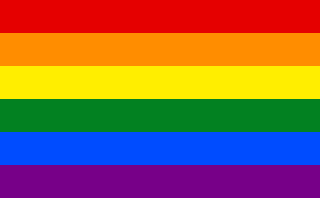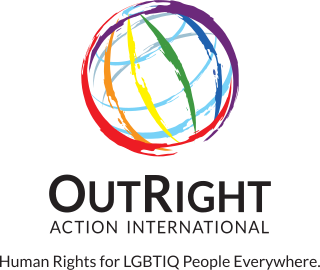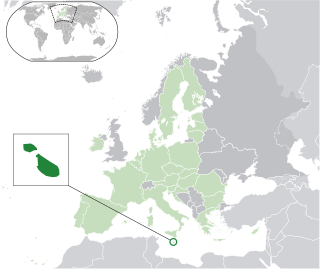A transgender person is someone whose gender identity is inconsistent or not culturally associated with the sex they were assigned at birth and also with the gender role that is associated with that sex. They may have, or may intend to establish, a new gender status that accords with their gender identity. Transsexual is generally considered a subset of transgender, but some transsexual people reject being labelled transgender.

LGBT is an initialism that stands for lesbian, gay, bisexual, and transgender. In use since the 1990s, the initialism, as well as some of its common variants, functions as an umbrella term for sexuality and gender identity.
The Sylvia Rivera Law Project (SRLP) is a legal aid organization based in New York City at the Miss Major-Jay Toole Building for Social Justice that serves low-income or people of color who are transgender, intersex and/or gender non-conforming. The organization was formed in August 2002 by attorney and transgender civil rights activist, Dean Spade. The project was named for Sylvia Rivera, a transgender activist and veteran of the 1969 Stonewall Riots, who died the same year that SRLP was formed.

Southall Black Sisters (SBS) is a non-profit organisation based in Southall, West London, England. This women's group was established in August 1979 in the aftermath of the death of anti-fascist activist Blair Peach, who had taken part in a demonstration against a National Front rally at Southall Town Hall. In 1980 SBS campaigned successfully against virginity testing in the UK, a policy which was being used to verify the authenticity of Asian marriages by checking the state of women's hymens.

OutRight Action International (OutRight) is a LGBTIQ human rights non-governmental organization that addresses human rights violations and abuses against lesbian, gay, bisexual, transgender and intersex people. OutRight Action International documents human rights discrimination and abuses based on their sexual orientation, gender identity, gender expression and sex characteristics in partnership with activists, advocates, media, NGOs and allies on a local, regional, national and international level. OutRight Action International holds consultative status with ECOSOC.

In law, sex characteristic refers to an attribute defined for the purposes of protecting individuals from discrimination due to their sexual features. The attribute of sex characteristics was first defined in national law in Malta in 2015. The legal term has since been adopted by United Nations, European, and Asia-Pacific institutions, and in a 2017 update to the Yogyakarta Principles on the application of international human rights law in relation to sexual orientation, gender identity, gender expression and sex characteristics.
LGBT movements in the United States comprise an interwoven history of lesbian, gay, bisexual, transgender and allied movements in the United States of America, beginning in the early 20th century and influential in achieving social progress for lesbian, gay, bisexual, transgender and transsexual people.

Homosexuality has been legal in Nepal since 2007. Lesbian, gay, bisexual and transgender (LGBT) rights in Nepal are among the most progressive in Asia. The Nepalese Constitution recognizes LGBT rights as fundamental rights.

The Yogyakarta Principles is a document about human rights in the areas of sexual orientation and gender identity that was published as the outcome of an international meeting of human rights groups in Yogyakarta, Indonesia, in November 2006. The principles were supplemented and expanded in 2017 to include new grounds of gender expression and sex characteristics and a number of new principles.

Mauro Cabral Grinspan, also known as Mauro Cabral, is an Argentinian intersex and trans activist, who serves as the executive director of GATE. A signatory of the Yogyakarta Principles, his work focuses on the reform of medical protocols and law reform. In July 2015, Cabral received the inaugural Bob Hepple Equality Award.

Morgan Carpenter is a bioethicist, intersex activist and researcher. In 2013 he created the intersex flag, and became president of Intersex Human Rights Australia. He is now a co-executive director. In 2015, he cofounded a project to mark Intersex Awareness Day.

Intersex people are born with sex characteristics, such as chromosomes, gonads, or genitals, that, according to the UN Office of the High Commissioner for Human Rights, "do not fit typical binary notions of male or female bodies."

Intersex people are born with sex characteristics, such as chromosomes, gonads, or genitals that, according to the United Nations Office of the High Commissioner for Human Rights, "do not fit typical binary notions of male or female bodies".

Intersex people are born with sex characteristics, such as chromosomes, gonads, or genitals that, according to the UN Office of the High Commissioner for Human Rights, "do not fit typical binary notions of male or female bodies". "Because their bodies are seen as different, intersex children and adults are often stigmatized and subjected to multiple human rights violations".

Intersex people are born with sex characteristics that "do not fit the typical definitions for male or female bodies". They are substantially more likely to identify as lesbian, gay, bisexual, or transgender (LGBT) than the non-intersex population, with an estimated 52% identifying as non-heterosexual and 8.5% to 20% experiencing gender dysphoria. Although many intersex people are heterosexual and cisgender, this overlap and "shared experiences of harm arising from dominant societal sex and gender norms" has led to intersex people often being included under the LGBT umbrella, with the acronym sometimes expanded to LGBTI. However, some intersex activists and organisations have criticised this inclusion as distracting from intersex-specific issues such as involuntary medical interventions.

Intersex rights in Malta since 2015 are among the most progressive in the world. Intersex children in Malta have world-first protections from non-consensual cosmetic medical interventions, following the passing into law of the Gender Identity, Gender Expression and Sex Characteristics Act in 2015. All Maltese intersex persons have protection from discrimination. Individuals who seek it can access simple administrative methods of changing sex assignment, with binary and non-binary forms of identification available.

Since March 15, 2022, Chile bans discrimination based on "sex characteristics" under Law 21,430 on Guarantees and Integral Protection of the Rights of Children and Adolescents. Between December 2015 and August 2016, the Chilean Ministry of Health issued a regulatory suspension of non-necessary cosmetic medical interventions on intersex children. The guidelines were replaced by guidance permitting intersex medical interventions.

Intersex people in Argentina have no recognition of their rights to physical integrity and bodily autonomy, and no specific protections from discrimination on the basis of sex characteristics. Cases also exist of children being denied access to birth certificates without their parents consenting to medical interventions. The National Institute Against Discrimination, Xenophobia and Racism and civil society organizations such as Justicia Intersex have called for the prohibition of unnecessary medical interventions and access to redress.










